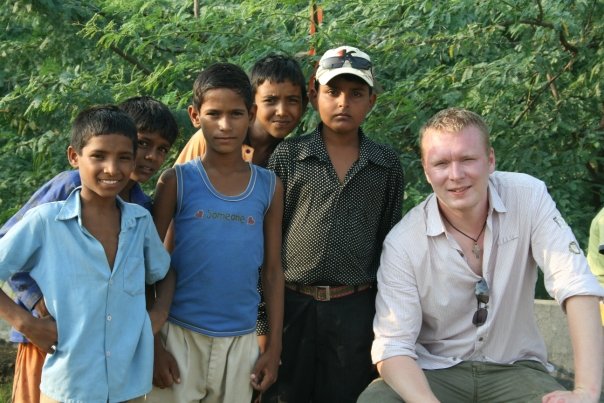Why We Need to Close the Gap
By Ben Grierson-Hill, Senior Global Campaigns Advisor, World Vision International
For many aid workers (and I use that term loosely for myself as I am rarely on the ground) there are those one or two defining stories that sum up exactly what they do and why they do it. Stories they’ve heard and people they’ve met who have impacted their attitudes, outlook, and ultimately, life. People who are constantly in the back of their minds, whose tales give that added push when you need it and that added mission to serve.
For me, one such moment came on my very first field trip – where, in 2008, excited, nervous and armed with a well-leafed-through copy of ‘Rough Guides India’, I set off for Rajasthan, in the North-West.
Healthy highways
The aim of the trip was simple: the team and I were to collect stories of the local Rajnat community for the 24-hour famine campaign, a youth fundraising event. Over the course of a week, we would work with the World Vision India office and a film crew to capture the story of the people, their customs and their challenges, in an effort to raise awareness back home.
The Rajnats have a long history. Originally acting as servants to the Raj’s throughout the region, now, as time has passed, many have turned to sex work as a main source of income. In the community, it’s tradition that once girls reach puberty they are encouraged to become sex workers and join the local trade in villages along the main highways. Due to the nature of this work, many of the young girls and their families have now become vulnerable to HIV and AIDs.
World Vision’s work in the area focuses on raising awareness on the health risks and providing education and training to offer alternative opportunities for community members. This work coined the name of the project: ‘Healthy Highways.’
As we collected stories, we gained a greater understanding of the culture and environment that this community existed in – not to mention the complex challenges of tackling a problem that has left these people slipping through the cracks for centuries.
Five words
In one village we met Suni, a 19-year-old girl who, at the age of 15, became a child sex worker. She told us about her life, her history and her work. Like many other teenagers she was lively, bubbly and talkative. But her words and her story were immeasurably powerful.
It wasn’t until later, when the trip was done, our work complete, flights come and gone and I was back in the relative comfort of our office in Milton Keynes, that I really comprehended the scale of Suni’s situation. One afternoon I had sat down with the raw footage, and with the help of a friend who could speak Suni’s native Hindi, began the task of translating extracts.
In her interview, we reached a question to which her response is something that I will always remember. Five words that for me sum up the scale of our everyday fight against global poverty and the answer to any questions challenging the validity of supporting other countries and people in need.
'Why do you work as a sex worker?’
‘Because hunger is a sin.’
Suni explained that her family looked to her to provide for them, but with no access to an education or training growing up, her options were limited, an issue at the heart of the problem in her community and why so many Rajnat girls turn to sex work. Without an education she can’t get another job, without a job she and her family would starve, and so the hunger causes her to do what she does.
These words have had a profound impact on my life. Suni’s story constantly challenges me and will stick with me for all my days. It’s a story that defines my work and my attitude towards it and is an example of the everyday problems and situations that as an organisation we are seeking to address: improving healthcare and awareness, increasing access to education and training, protecting the most vulnerable and marginalised communities. It should be a call to action for us all.
Closing the Gap
This week our Close the Gap mobilisation, as part of World Vision’s global Child Health Now campaign, will call on governments to put a greater focus on the communities who are slipping through the cracks - communities like Suni’s.
We are asking governments to step up their efforts to close the gap between the health rich and health poor and ensure that all children have not only the chance to live past the age of five, but a chance to fulfil their lifelong potential.
I have had the privilege to have worked on this campaign and I invite you to as well. You can support people like the Rajnat’s all around the world by taking action in a number of very simple ways:
1. Act – Take the Close the Gap pledge and call on world leaders to ensure that all children can survive 5 – Take Action
2. Share – Join World Vision UK on Facebook, Twitter or Google+ and help spread the Close the Gap message to your friends, family and followers.
3. Watch -Watch & share our campaign video, a new twist on the Pied Piper fairy tale:
